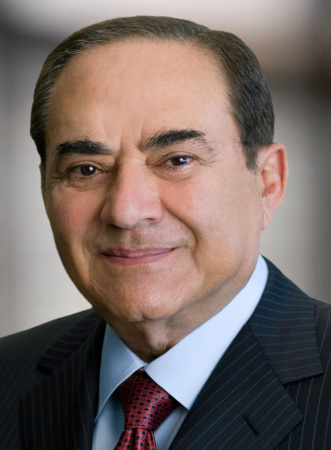
FILE - This undated photo provided by Occidental Petroleum Corp., shows Occidental Petroleum Corp.'s Dr. Ray R. Irani.; Credit: Occidental Petroleum/AP
One of the highest-paid execs in corporate America is out of a job. Investors at the Los Angeles-based Occidental Petroleum voted to oust Executive Chairman Ray Irani at its annual shareholder meeting last Friday.
Shareholders were apparently unhappy with Irani’s alleged attempt to throw out the energy company’s current CEO, who replaced him two years ago. Shareholder activism has apparently been on the rise and Ray Irani is but the latest casualty. In April, Hewlett-Packard’s Ray Lane resigned as chairman, and at Chesapeake Energy, Aubrey McClendon stepped down as the firm’s CEO.
Guest:
Damien Park, president and CEO of Hedge Fund Solutions, LLC, a consulting firm that studies shareholder activism based in Philadelphia.
An earlier version of this post incorrectly linked Occidental Petroleum with Occidental College and featured an image of the college. There is no link between the two, and KPCC regrets the error.



























